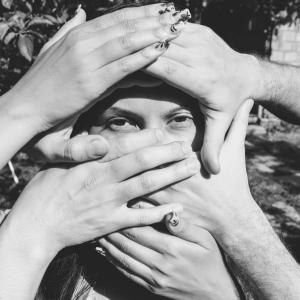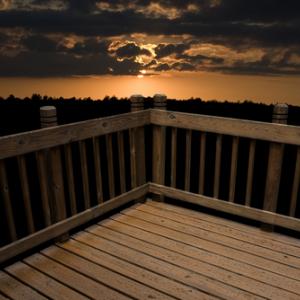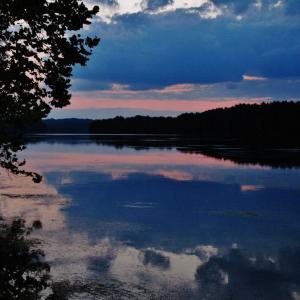
Melissa Otterbein is a freelance writer of spirituality, social justice, and gender and has been featured on Religious News Service, Sojourners online, Patheos, and the Baltimore Sun. She began her career in HIV research at Johns Hopkins University before joining the Global Health Corps as a Program Manager for The Grassroot Project, a Washington, DC non-profit that utilizes college athletes to provide HIV education in DC middle schools.
She is a triathlete and uses her races as a platform to advocate for women's full inclusion in the Tour de France. She is the founder of Letters to Future Sisters, a collection of letters from women across the world that shares stories of women's lives and dreams for future generations of women and girls.
She writes at melissaotterbein.wordpress.com and is on Twitter at @motterbein and @futuresisters.
Posts By This Author
Encounters With the Divine: Experiencing God on a 1,000 Year Old Spanish Pilgrimage
These moments of wonder, beauty, and human connection — the simplicity of walking one foot in front of the other each day, open to conversation and observation of the time and space around you — are the elements of pilgrimage for which I am most grateful. As cliche as it sounds some 500 kilometers later, I really do feel like my pilgrimage is just beginning.
I believe pilgrimage, like God, is all around us and within us. And whether we are on this path for the first time or the 199th, there is still something here for us. Maybe not a revelation, but a noticing, a paying attention, a shifting our gaze from ourselves to the sky or the children’s laughter at the park.
If we approached this day as pilgrimage, a wandering toward creation, toward God, toward each other, toward the Earth and sky and stars, how might we see the world?
Hurry Up and Don’t Die: Life, Death, and Lessons on Self-Compassion
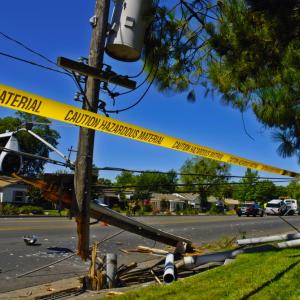
Image via Karin Hildebrand Lau/Shutterstock
I didn’t realize the promise I vowed to myself — to never to live out of step with my values, to always live with passion and bring life into the world — would be a tall order; an impossibly high standard that could turn into, “I need to do and experience everything as quickly as possible so that I don’t waste time.”
Over the past 10 years, this experience developed an impulse to “hurry up” and “do more.” I overextended myself in too many activities the next few years, developed an anxiety and depression disorder, and shamed myself for living in this anxious state when I “should” be living it joyfully to the full.
Through therapy and medication, I got much better, but was still lusting after experiencing everything. Time never seems to be on your side when you’re living like you might die tomorrow. Life never seems long enough when you act like it will stop at the same minute as your heart, forgetting about all I’ve been taught about life after death.
A Voice For the Voiceless? Thoughts on Privilege and the Single Story
Throughout my past eight years of engaging in social justice, I’ve been drawn to people who have uncanny ideas. Ideas that peace and unity can exist. Dreams that Heaven can indeed be experienced on this planet. People who are unafraid to raise hell and create peace in every single breath.
But often times, in these circles, a buzz phrase kept coming up: “Being a voice for the voiceless.”
This phrase is used in many circles, from large Christian NGOs to CNN. It likely means something different to each person. When it comes from voices in the faith community, it’s often rooted in the words of the prophet Isaiah: “Speak out on behalf of those who have no voice, and defend all those who have been passed over." (Proverbs 3:18).
While I never believed in being a voice for the voiceless, I’ve had my fair share of ethnocentrism. As I boarded a plane for South Africa in 2007 on a service learning trip, I asked the white woman sitting in front of me what she’d be doing in Africa, as though everyone on the plane was going for a visit like me.
“I live there,” she replied, flatly.
Thoughts on Lent From a Non-Churchgoer
It snuck up this year, as though I’d almost forgotten about it until I saw friends in another time zone posting Mardi Gras pictures. Mardi Gras is this week? I thought. That means Lent begins this week?! Maybe it’s because I don’t go to church right now, or because I’m not in a spiritual community like I was before I moved cities. But for whatever reason, it came fast and unexpected, and something inside won’t let me pass it up. As much as I disagree with some of the traditional teachings about Easter and various interpretations of why Jesus was crucified, I have always had a penchant for Lent.
Lent is a time that draws out the heart’s ability to draw nigh to your Creator. Of drawing closer to God, to others, to the wide open world around us. A time for spiritual reflection and inner examination. A time to pause. A time for simplicity. A 40-day season containing strong, beautiful symbolism. Death from life. Life from death. The two are inseparable. Hope is reborn, recycled out of crushed pain and heartache. The timing of this season enhances the meaning all the more to me, as we begin Lent in the waning winter, in which it is still snowing as I write this. But we end Lent well into spring.
Ashes of Hope: My Love of Lent but Not of Murder on a Cross
Even the winter won’t last forever. We’ll see the morning, we’ll feel the sun.
We’ll wake up in April, ready and able, Sowing the seeds in the soil.
Even the darkness cannot disarm us. We’ll see the morning, we’ll feel the sun.
-Audrey Assad
Easter is what many would argue to be the quintessential turning point of the Christian faith. The crux. The climax of the story. The thing that you must be able to articulate into carefully formed sentences depicting your belief, as though words and theology solely define your spirituality and very existence. Perhaps from all of this lies the basis for the trite messages that I, along with so many others, have heard about the Christian faith. “Jesus died for your sins.” “Jesus paid the debt.” “Jesus stood in your place and died for you so that you might have life.”
And if those words bear truth and meaning to you, I have not come to take them away, nor discredit them.
It’s just not the Jesus I’ve come to know, face-to-face in my human spiritual struggle.
The Juxtaposition of Death and Life, or Church on a Bike
“What? What happened?” My co-worker asked, sensing the solemn look on my face.
“Another patient died,” I reported. Grief and thick silence hang in the air as I thought back to the last time I saw this person, hospitalized, unable to speak, but for a brief moment our hands met in an embrace, and although he couldn’t speak, his demeanor and soft touch of the hand said it all.
I brought myself back to the present moment. It was the end of the work day and I strapped on my helmet to bike home, a Lenten commitment I’ve found to be incredibly rejuvenating.
I pedal past the housing projects and turn the corner around the city jail. Activists holding bright colored placards protest peacefully against the death penalty. I smile at them. “Keep up the good work!” I enthuse, giving them a thumbs up from my navy blue mitten and pedal on my way.
A second later, it hits me. Tears rush to my eyes but refuse to come out. The taut muscles in my throat contract; that familiar lump in which no words can come out, just expressions of the heart. Yes, it hit me.The juxtaposition and irony of it all. Life and death. One man died today from four letters that no one should ever have to die from, but globally, some 1.8 million do every year. Another man protested for the life of another to not be cut short before the redemption and healing and forgiveness began.
The Art of Slowing Down (And The Wisdom of Louis Armstrong)
I’ve often heard that Lent is a season of slowing down. Of drawing closer to God, to others, to the wide open world around us. A time for spiritual reflection and inner examination. An opportunity to go a little deeper in trying to figure out Jesus. A time to pause. A time for simplicity.
This Lent, I decided to get back into biking to and from work (in addition to cold showers and placing a penny in the “Suck it Up or Shut Up” jar each time I catch myself complaining).
When I moved across town in June, I said I’d bike once I found a good route, but I weaseled my way out of it for reasons such as having to bike through some sketchy areas by myself, something I was a bit fearful of.
Now a few days into it, I’ve found a route and a rhythm. I got off to a rough start the first day of Lent, biking home drenched by the down-pouring rain. Two cars didn’t see me, causing me slam on the brakes, skidding in the middle of an intersection. Cars passing by splashed water up against me like a small ocean wave. It was cold. It was dark. And I kept making wrong turns, making my time in the rain even longer. I had a “shake your fist at God” moment, muttering things that warranted pennies in the jar, and then managed to put my sopping wet hand back on the handlebar. I thought about the journey that women in Africa make to and from water wells and firewood piles on a daily basis, often risking the possibility of getting raped just to gather these essentials for their families. Surely, I didn’t have it so bad.
And most of us don’t.
Sorry, But God Isn't a Ravens Fan
One of my favorite views of Charm City right now is entering into the downtown area from the 395 off-ramp. Our city is painted with Ravens spirit — purple lights dancing on skyscrapers, "Go Ravens!" posters taped to city windows, and my favorite: the billboard that simply said "WOW" after the Ravens' win Sunday over the Patriots. In fact, as I sit down to write this at the Towson Public Library, a woman just pointed out that the bookshelf next to me contains an entire collection of books with purple covers, complete with a border of purple stars cut out of construction paper.
Purple has become a unifying topic, bringing complete strangers together in conversation. All week at work, I've asked patients, "Did you see the game?" or I'd see someone wearing a purple scarf and fist bump in the air an amiable, "Go Ravens!" I think this is one of the beautiful things about sports: its ability to bring people together irrespective of socioeconomic status, race or political beliefs.
But I can't help but notice something else about all this celebration — something that disturbs me.
Top 5 Best and Worst Bits of 'Christian Sex' Advice
“Your body is a wrapped lollipop. When you have sex with a man, he unwraps your lollipop and sucks on it. It may feel great at the time, but, unfortunately, when he’s done with you, all you have left for your next partner is a poorly wrapped, saliva-fouled sucker.”
I cringed behind the wheel, appalled at the quoted words I heard coming from my audio copy of Half the Sky as authors Sheryl WuDunn and Nicholas Kristof discussed this statement uttered by Darren Washington, an abstinence educator, at the Eighth Annual Abstinence Clearinghouse Conference.
Sadly, it wasn’t too far off many Christian messages I’ve received about sex.
But let’s go back to the beginning.
Meet the Nones: Words Are Unnecessary
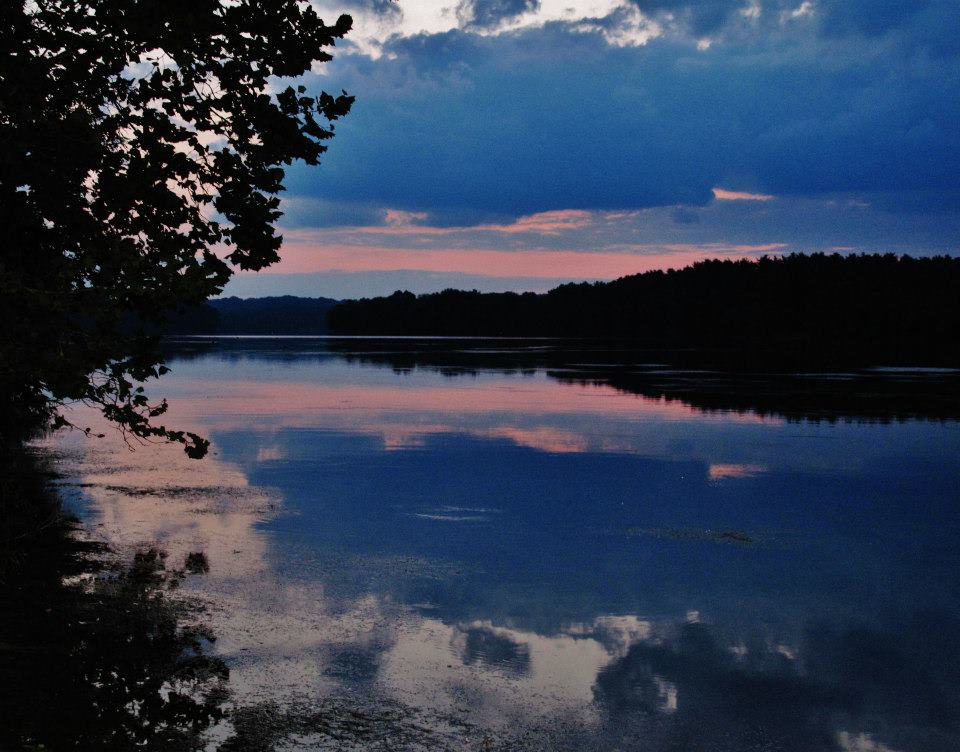
Editor's Note: Melissa Otterbein tells her story of why she's part of the 20 percent of Americans who identify with "no religion in particular."Find more stories (or share your own) HERE. Read about the study HERE.
A "recovering Evangelical," author Melissa identifies with the "nones" after church experiences in the non-denominational Church, Lutheran Church, Church of God, United Church of Christ, and the kind of Church that happens when you have hour-long conversations with people who are materially poor yet rich in spirit. Each of these "Churches" (and those not mentioned) depict Christ in beautiful ways, she believes, but feels that solely identifying with a denominational designation hasn't seemed to fully capture her faith experience. Though "none" might seem like a shocking response to "which religious tradition do you closely identify with?" it's one that, "offers freedom in Christ that brings me to closer to the Kingdom of God in the here and now."
I am tired of explaining away my faith.
I am tired of defending, “proving,” withholding my true feelings for fear of religious retaliation.
I’m tired of watching some people argue their faith, trying to “win people to Christ” with their cogent, convincing “answers.”
I’m tired of watching Jesus be sold, marketed, put on display.
I’m tired of watching certain people try to convince the world why their God is the right God.
I’m tired of listening to people deify their Bible by retorting this verse and that verse when our God is so much bigger than the sole medium of Genesis-Revelation.
I’m tired of platitudes about the Word and faith and sin and grace that I’ve heard over and over again; for every time I hear these trite remarks, I question if we’ve lost the unadulterated beauty behind such venerable passages.

